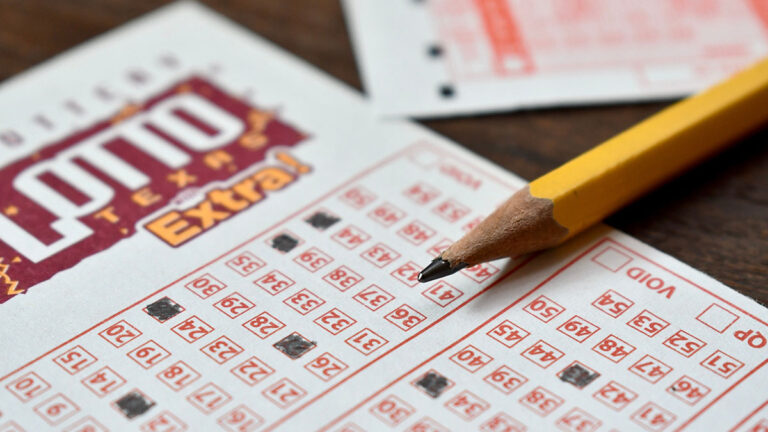
The future of the Texas Lottery is in jeopardy amid a series of scandals and facing a legislature hostile to legal gambling in any form. The state’s Lottery Commission appears all but certain to disappear, though the Lottery itself may receive another couple of years to make a case for its continued existence under new oversight. Last week, a bill passed in the Texas Senate that would assign the Texas Department of Licensing and Regulation until 2027, deferring a final decision on its future until then.
Under the state’s Sunset Act, most agencies require a review every 12 years to ensure they’re still needed. The Sunset Advisory Commission is the body in charge of conducting the review and making a recommendation to lawmakers.
Unfortunately for the Texas Lottery Commission, the timing for its latest review came just as it was embroiled in the Rook TX scandal.
Rook TX was an out-of-state group that conspired in 2023 to buy almost every possible combination of numbers for the state lottery after the jackpot grew to $95 million. With 26 million combinations and tickets selling for $1 apiece, it was a profitable move, but only possible with the assistance of unregulated lottery couriers. These businesses partner with licensed retail lottery sellers to buy tickets on players’ behalf after taking orders over the internet.
Although the Sunset Commission only recommended that the Lottery Commission should regulate couriers in the wake of the scandal, its analysis combined with media coverage stirred up anti-lottery sentiment in the legislature. That has led to the very real possibility that lawmakers could fail to take the necessary actions to renew the Commission. Without some kind of bill passing, that could mean an immediate end to the Lottery.
What will happen to the Texas Lottery?
Not all US states have lotteries and not all of those that do have had them for very long. The first legal lottery in the continental US was New Hampshire’s, established in 1964. Even as recently as 2000, only 37 states had embraced the idea. However, eight more have followed suit in the 21st century, leaving only Alabama, Alaska, Hawaii, Nevada, and Utah without.
About half the states with lotteries launched in a 12-year period from 1982 to 1993. Texas came at the tail end of that, amending its constitution in 1991 and beginning sales the following year.
Now, it stands poised on the cusp of making history by becoming the first state to reverse course.
The Texas legislative session ends on June 2. Without action by lawmakers, the Lottery Commission will fall victim to the Sunset Act, leaving the Lottery no legal way to continue operating.
The platform of the Texas Republican party takes an uncompromising position on gambling in general. Although House Republicans have shown some flexibility, the Senate GOP expects its members to toe the line. That, combined with courier-related backlash makes a full renewal of the Commission unlikely.
However, lottery revenues are important to Texas, as they are to other states. Sen. Bob Hall’s bill, SB 3070, would abolish the Commission but allow the Lottery to continue under the Department of Licensing and Regulation as an interim measure while calling for a second review by the Sunset Advisory Commission. That bill passed on May 15 and now sits before the House.
There is another bill, SB 2402, that would spare the Lottery Commission. However, its funding was removed from the current budget draft, so its survival would depend on a revised budget as well as that bill’s passage.
How things got to this point
It’s unclear whether Republican opposition to gambling would have been enough on its own to doom the Lottery Commission. However, the Rook TX scandal and resulting scrutiny of couriers can’t have helped.
The Sunset Commission placed most of the blame at the feet of former Executive Director Gary Grief, who held that position from 2010 to 2024. Its report stated that Grief “likely contributed to the uncomfortable position the agency finds itself in today” due to his hands-off approach to couriers.
Lottery couriers first came to Texas in 2015. Under Grief’s leadership, the state soon became known as a large and readily accessible market, and served as the jumping-off point for many new brands entering the space. The Sunset Commission determined that Grief had been comfortable turning a blind eye to this gray area in the state’s lottery laws because sales reached record levels thanks to the convenience offered by couriers.
Grief retired in February last year. Under his successor, Ryan Mindell, the Commission gradually began trying to rein couriers in. However, a second scandal caused the Lottery to withhold an $83.5 million jackpot won by a courier user. Mindell subsequently resigned from his position after barely a year on the job, and the Commission suddenly banned couriers outright just days later.
Lieutenant Governor Dan Patrick made matters worse, stirring up the public against lottery couriers by taking a series of videos exposing the way the businesses’ retail partners operate and posting them on social media. Several lawmakers have said they would like to see the lottery abolished entirely, but Patrick has endorsed the idea of SB 3070, saying it will allow him to be a “lottery inspector” for the next two years and that “we’ll see what happens” after that.




